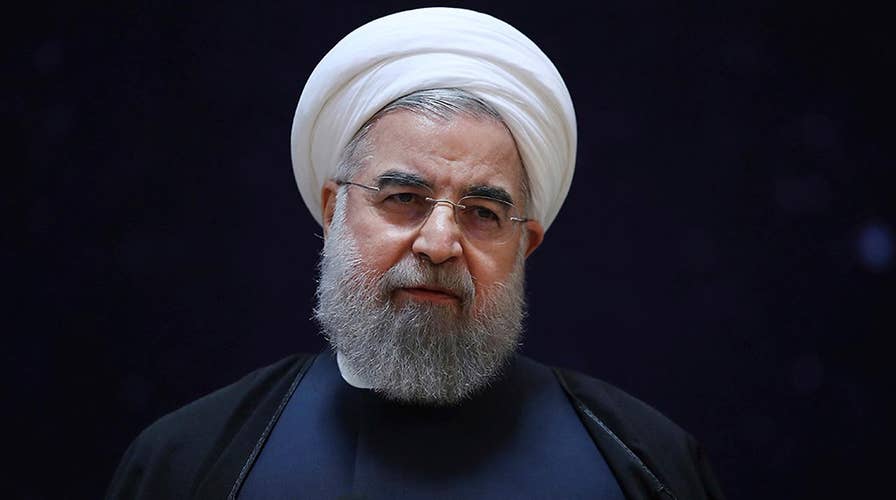White House puts Iran 'on notice,' will impose new sanctions
Reaction and analysis on 'The Five'
The Trump administration is expected to announce as early as Friday new sanctions by the U.S. on multiple Iranian entities after a recent ballistic missile test, sources familiar with the matter confirmed to Fox News.
The new sanctions however would not violate the Iran nuclear deal signed in 2015, but instead be related to terrorism-related activities and ballistic missile-related activities that exist under separate existing U.S. executive orders, according to sources.
Earlier on Thursday, President Trump said his administration has put Iran "on notice," echoing comments from his top national security adviser Michael Flynn earlier in the week that the U.S. will act against Iran unless it stops testing ballistic missiles and supporting Houthi rebels in Yemen.
Trump tweeted, "Iran has been formally PUT ON NOTICE for firing a ballistic missile. Should have been thankful for the terrible deal the U.S. made with them!"
He added in another tweet: "Iran was on its last legs and ready to collapse until the U.S. came along and gave it a life-line in the form of the Iran Deal: $150 billion."
As part of the nuclear deal struck during the Obama administration, Iran received access to an estimated $100 billion of its own money that had been frozen in foreign bank accounts. The U.S. did not give Iran $150 billion.
On Wednesday, Flynn forcefully denounced Iran's behavior, accusing the country of threatening U.S. allies and spreading instability throughout the Middle East while faulting the Obama administration for doing too little.
"As of today, we are officially putting Iran on notice," Flynn said from the White House podium.
On notice for what, Flynn didn't say. Senior Trump administration officials said they were actively considering a "range of options" including economic measures and increased support for Iran's regional adversaries. The officials, who briefed reporters on condition of anonymity, declined repeatedly to say whether military action is being considered.
Iran's acting commander of the elite Revolutionary Guard, Gen. Hossein Salami, responded in comments to the semi-official Tasnim news agency Thursday, saying Iran will "never change direction by a world power's demand, and our missile and nonmissile power will be updated every day."
Salami added, "If our missile power was not such a power to put fear into the hearts of Americans, there is no reason for these controversies."
The White House has also faulted Iran for backing Houthi rebels in Yemen who on Tuesday claimed a successful missile strike against a warship belonging to a Saudi-led coalition fighting to reinstall Yemen's internationally recognized government. The media arm of the Shiite rebels said the vessel was believed to belong to the Saudi Arabian navy.
Administration officials said Iran was providing key support by arming, training and financing the rebels, with a goal of leveraging its relationship with the Houthis to "build a long-term presence in Yemen."
The White House said the goal in putting Iran "on notice" was to signal to Tehran that it needed to rethink its behavior. Flynn said Iran specifically violated the U.N.'s ban on "activity related to ballistic missiles designed to be capable of delivering nuclear weapons, including launches using such ballistic missile technology."
Iran's Defense Minister Gen. Hossein Dehghan confirmed Wednesday that Iran conducted a missile test, but did not say when the test was carried out or specify the type of missile. He insisted it wasn't a violation of U.N. resolutions.
Fox News' John Roberts and The Associated Press contributed to this report.






















